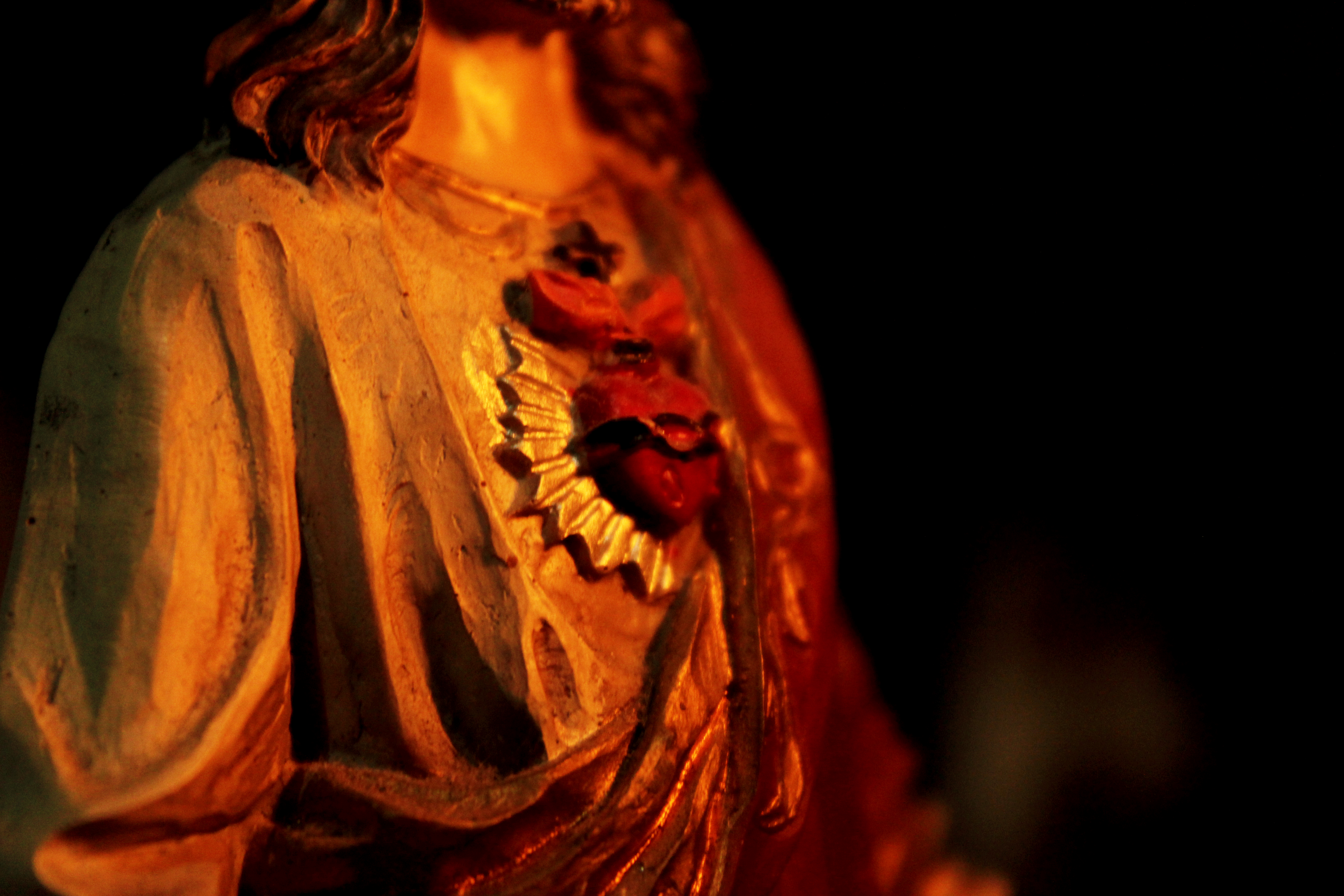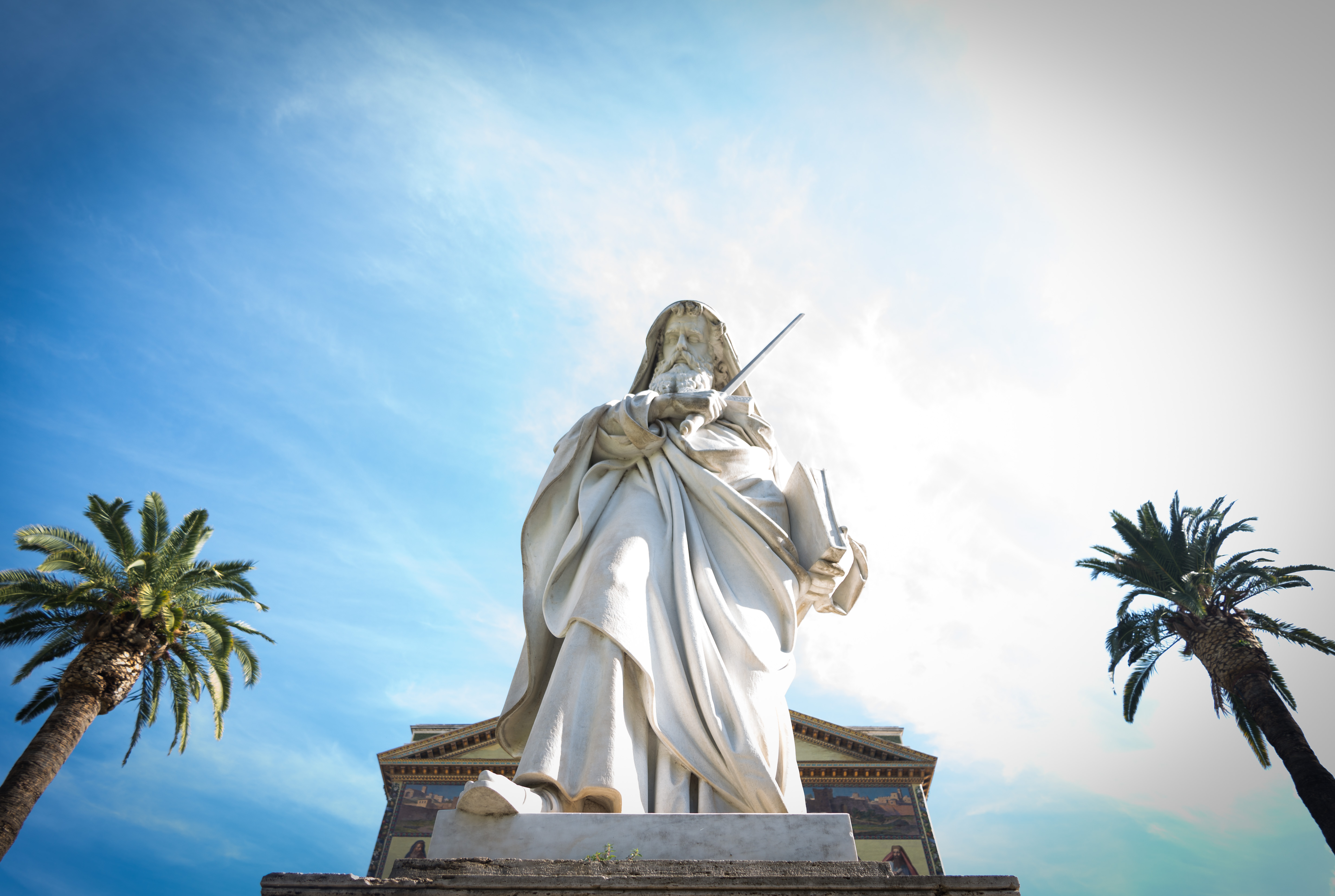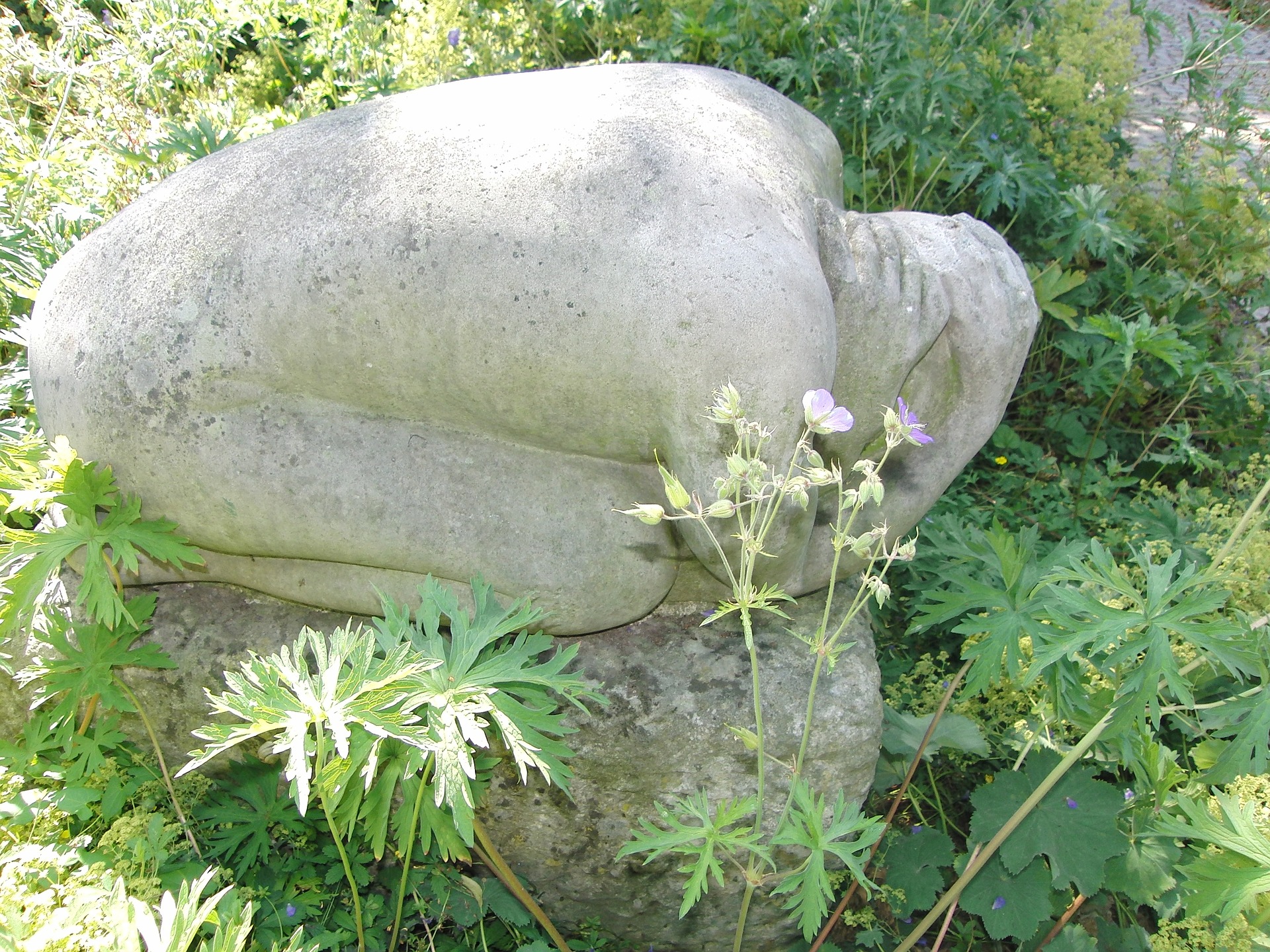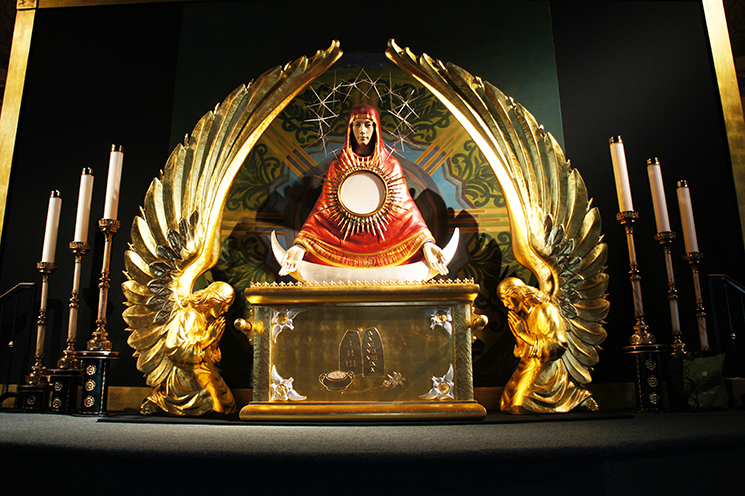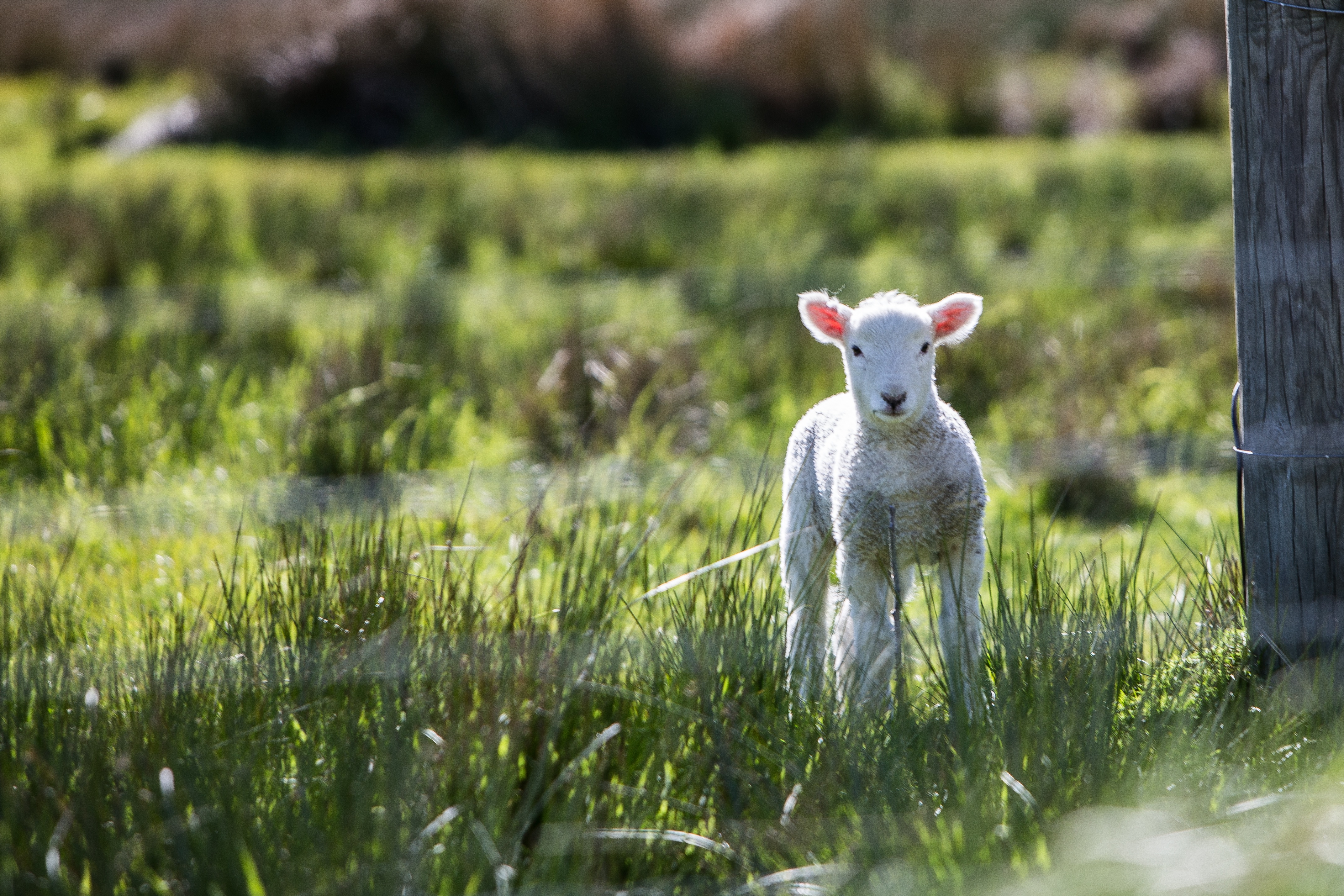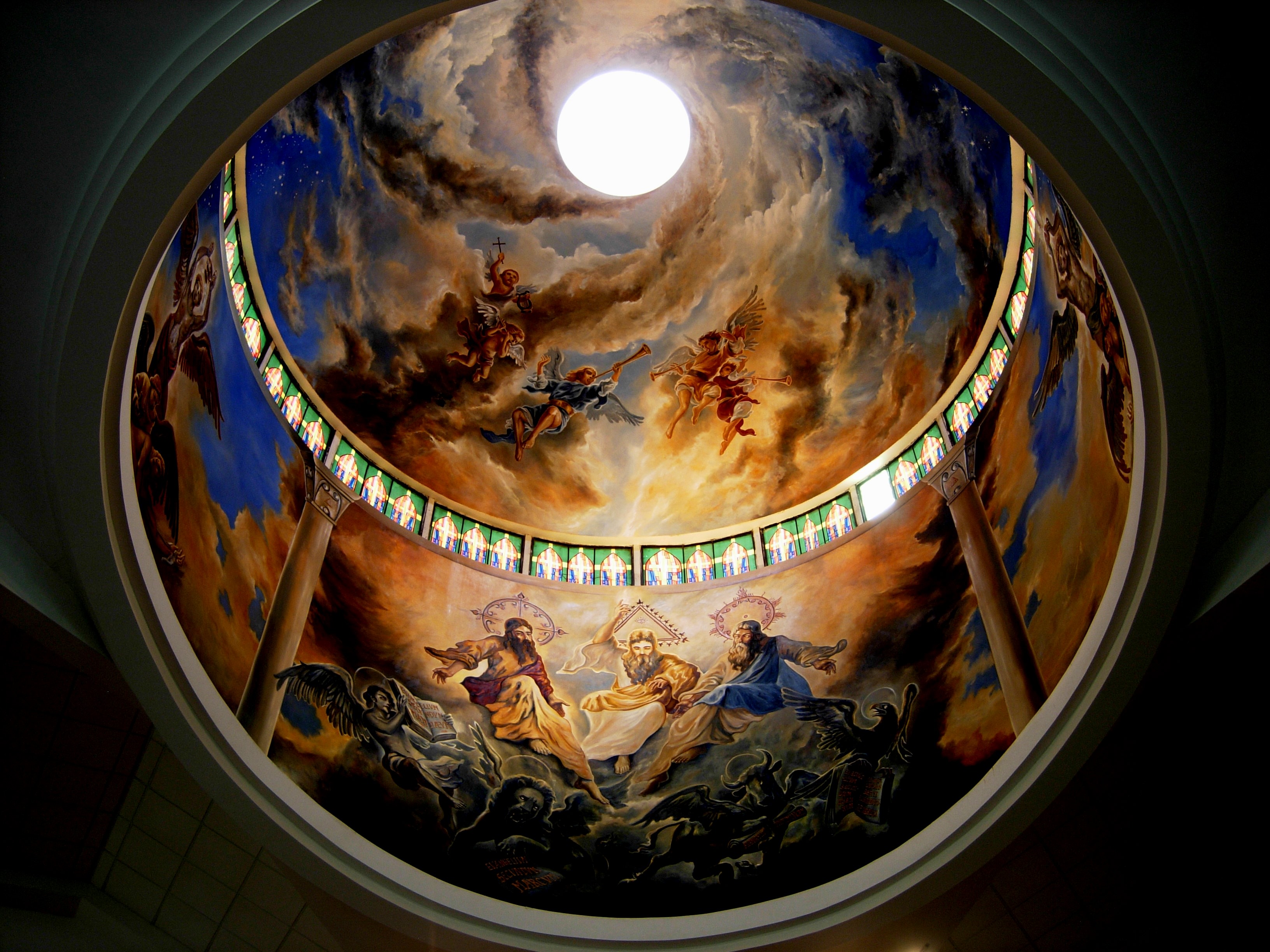Jesus sometimes used hyperbole to get his listeners’ ears open; he talked about plucking out eyes or chopping off hands, which he certainly did not mean literally (he only meant that our spiritual well-being is much more important than our physical well-being). So is he using hyperbole in today’s Gospel? Is he exaggerating for effect? Or does he mean it literally when he tells us we must love our enemies and give our property to those who have already taken it?
Well, yes.
Jesus came to redeem us and also to show us the way to be truly righteous in a world of unrighteousness. In order to do these things, he had to turn our human understanding upside down. He came to demonstrate what real love looks like so that we could see that what we thought we knew is far from actual truth, that God’s ways are far above our ways. But he didn’t leave it there; he also merited for us all the grace needed to empower us to act in God-like ways!
God-like ways are not natural for us, but God’s love and grace fill us and enable us to turn our natural reactions into SUPERnatural reactions! It is not natural to react to those who hate us with love; but God’s love IN us allows us to find ways to love them. It is not natural to let go of what is taken from us, but God’s love IN us allows us to surrender even that. Our human response to actions that infringe on what is rightly ours is to insist on our rights, but God’s generosity IN us allows us to let go of even what is rightly “ours.”
All the “reasonable” considerations and calculations we make when deciding what to give are only human. But God’s love IN us allows us to toss these considerations to the side to answer the call of love with complete self-forgetfulness. So we need to call on that grace to keep us from asking, “What’s in it for me?” (because then we have made ourselves the recipient of our own gift, and it is no gift at all!), or “What will this cost me?” (because then we are counting the cost, which is putting self first, and not the other!).
The natural reaction of the heart is to protect itself, but God’s love IN us helps us see that the real measure of love is the Sacred Heart of Jesus. This Heart was pierced and poured out as complete self-gift for love of you and me. “The collapse of the opened heart is the content of the Easter mystery. The heart saves, indeed, but it saves by giving itself away” (Benedict XVI).
Complete self-giving is not hyperbole or exaggeration. The Gospel is a continual call to let go of our natural tendency toward self-preservation and pour ourselves out – “lose our lives” – for love of God and others. This Lent, what is God calling you to surrender?
 Kathryn Mulderink, MA, is married to Robert, Station Manager for Holy Family Radio. Together they have seven children (including Father Rob), and four grandchildren. She is President of the local community of Secular Discalced Carmelites and has published five books and many articles. Over the last 30 years, she has worked as a teacher, headmistress, catechist, Pastoral Associate, and DRE, and as a writer and voice talent for Catholic Radio. Currently, she serves the Church by writing and speaking, and by collaborating with various parishes and to lead others to encounter Christ and engage their faith. Her website is www.KathrynTherese.com
Kathryn Mulderink, MA, is married to Robert, Station Manager for Holy Family Radio. Together they have seven children (including Father Rob), and four grandchildren. She is President of the local community of Secular Discalced Carmelites and has published five books and many articles. Over the last 30 years, she has worked as a teacher, headmistress, catechist, Pastoral Associate, and DRE, and as a writer and voice talent for Catholic Radio. Currently, she serves the Church by writing and speaking, and by collaborating with various parishes and to lead others to encounter Christ and engage their faith. Her website is www.KathrynTherese.com
Feature Image Credit: Cesar Retana, https://www.cathopic.com/photo/19675-fire-heart
